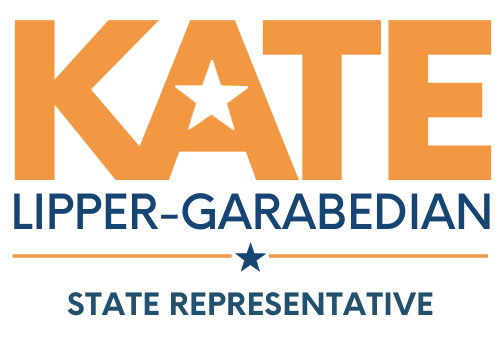State Representative Lipper-Garabedian Joins Massachusetts House to Pass Home Care Bill
Bill establishes a licensure process for home care agencies
BOSTON – Wednesday, November 5, 2025 – State Representative Kate Lipper-Garabedian joined the Massachusetts House of Representatives today to pass a bill that establishes a licensure process for home care agencies to ensure that consumers receive quality non-medical services, and to protect home care workers. The bill tasks the Executive Office of Health and Human Services (EOHHS) with implementing the licensure process, and grants the secretariat the authority to approve licenses, survey and investigate home care agencies, and impose fines when appropriate. Under the bill, home care agencies would be required to disclose anyone with a 5 percent ownership interest in the agency, carry workers compensation and liability insurance, and provide appropriate levels of training for their employees.
The bill also creates two advisory councils: the Home Care Oversight Advisory Council to help guide the development and implementation of the home care licensure process, and the Home Care Worker and Consumer Abuse Stakeholder Advisory Committee to make recommendations on standards and procedures to address the abusive treatment of home care workers, personal care attendants (PCAs), and home care consumers. The bill also grants additional anti-discrimination protections for PCAs.
“As the former House Vice Chair of what is now the Joint Committee on Aging and Independence, I’m delighted that the Chamber has built on the long-term care bill that I filed last session with Chair Stanley and that now is the State’s law on nursing homes and assisted living residents to affirm today the full continuum of care for older adults by elevating attention on home care,” said State Representative Lipper-Garabedian (D-Melrose). “Older adults want to age at home, and demand is increasing as our population ages. The House bill will enhance consumer protections for older adults and their families by increasing quality of care expectations and heightening ownership transparency. The House further acknowledges the dignity of home care workers by codifying important workplace protections. My gratitude to Chair Stanley for your leadership on these issues and to Speaker Mariano and Chair Michelwitz for continuing to prioritize our older adults.”
“This legislation takes important steps to improve services for seniors, and to ensure a safe work environment for home care workers,” said House Speaker Ronald J. Mariano (D-Quincy). “I want to thank Chairman Stanley for his work on this legislation, as well as all my colleagues in the House for recognizing the importance of these reforms.”
"This legislation could not have been passed at a more critical time," said Representative Thomas M. Stanley (D-Waltham), House Chair of the Joint Committee on Aging and Independence. "With our aging population expected to grow exponentially in the coming years and the number of family caregivers shrinking, the demand for home care will subsequently increase. It is critical for the Commonwealth to have the proper standards and protections in place for home care agencies to ensure consumers receive quality care and our dedicated home care workers are properly trained and supported in the field. I'm grateful to Speaker Mariano, Chairman Michlewitz and my colleagues in the House for once again prioritizing the needs of our aging population and continuing to champion policies that promote aging in place and help older adults remain independent."
Oversight: Transparency & Accountability
Grants EOHHS the ability to fine any person or entity that represents themselves as a home care agency without proper licensure, or that violates any other rules and regulations
Grants EOHHS the ability to work with the Executive Office of Aging and Independence (AGE) and the Department of Public Health (DPH) on surveying and investigating home care agencies to ensure compliance
Requires EOHHS to conduct a suitability review for all licensure applicants, including for all individuals with at least a 5 percent ownership interest in the agency, and a review to ensure that all applicants have sufficient financial capacity to provide a minimum standard of care
Requires EOHHS to publish a list of all licensed home care agencies on its website
Establishes standards for consumer-specific service plans and contracts, including a description of services, total cost of care, and agency contact information
Establishes quality metrics and standards for monitoring home care agency performance
Workforce Protections
Establishes procedures to ensure home care workers have safe working conditions, adequate training, and a process for submitting complaints
Requires licensed home care agencies to have coverage for worker’s compensation and liability insurance, and to provide adequate equipment and supplies to home care workers
Creates the Home Care Worker and Consumer Abuse Stakeholder Advisory Committee to study and make recommendations on standards and procedures for addressing abusive treatment, including physical, verbal, mental abuse, and bullying of home care workers, PCAs, home care consumers, and family members, including:
Reporting abusive treatment and debriefing after incidents of abusive treatment
Tracking and retaining records of abusive treatment
Informing home care workers of potentially unsafe working environments
Training for all employees of home care agencies, including on escalation cycles and effective de-escalation techniques
Grants PCAs anti-discrimination protections to shield them from harassment or discrimination based on sex, race, religion, etc.
Minimum Standards for Home Care Workers
Requires several background screening checks for all home care workers
Establishes annual training and competency requirements, including:
Confidentiality and privacy rights of home care consumers
Infection control and communicable diseases
Handling of emergencies, including safety and falls prevention
Observing, reporting, and documenting changes in home care consumer needs and environment
Identifying and reporting suspected abuse, neglect, or theft
Understanding Alzheimer’s disease and dementia, including person-centered care, activities of daily living, safety, and dementia-related behaviors and communication
Having passed the House of Representatives 153-1, the bill now goes to the Senate for consideration.
###
